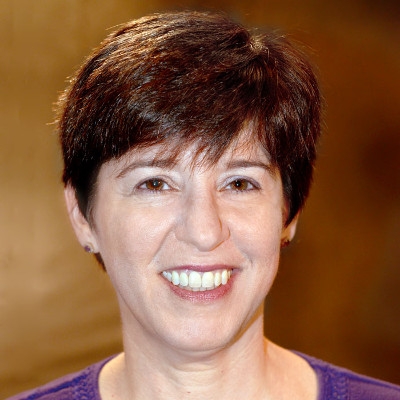Facts & Figures Report: Cancer Rates Vary Widely Among Asian Americans, Native Hawaiians, and Pacific Islanders
A new report from the American Cancer Society details the rates of new cancer cases and the rates of cancer deaths among Asian Americans, Native Hawaiians, and Pacific Islanders (AANHPIs). The rates vary widely among this population, mostly because of significant differences in exposure to cancer risk factors. The report is published in CA: A Cancer Journal for Clinicians and also as a Special Section in Cancer Facts & Figures 2016.
Asian American refers to people with origins in the Far East, Southeast Asia, or the Indian subcontinent. This group includes, but is not limited to, Asian Indians, Cambodians, Chinese, Filipinos, Hmong, Japanese, Koreans, Pakistanis, and Vietnamese. Native Hawaiian and Pacific Islander refers to people with origins in Hawaii, Guam, Samoa, or other Pacific Islands.
The report estimates there will be 57,740 new cancer cases and 16,910 cancer deaths among Asian Americans, Native Hawaiians, and Pacific Islanders in 2016. Among men, the 3 leading causes of cancer death are lung, liver, and colorectal. Among women, they are lung, breast, and colorectal. The most commonly diagnosed cancers among men are prostate, lung, and colorectal. Among women, the most commonly diagnosed cancers are breast, thyroid, and lung.
According to the report, lung cancer rates in Samoan men are about 30% higher than those in Hawaiian, non-Hispanic white and Laotian men and almost 80% higher than in Asian Indian/Pakistani men because of differences in smoking. For liver cancer, rates in Laotian and Vietnamese men are 2 to 4 times higher than those in Chinese, Korean, and Filipino men and almost 10 times higher than Asian Indian and Pakistani men, who have the lowest rates.
“The variations we see in cancer rates in AANHPIs are related to risk factors, including lifestyle factors, use of screening and preventive services, and exposure to cancer-causing infections,” said Lindsey Torre, co-author of the report. “Cancer-control strategies among this population include improved use of vaccination and screening; interventions to increase physical activity and reduce excess body weight, tobacco use, and alcohol consumption; and research to get a more detailed understanding of differences in the cancer burden and risk factors between subgroups.”
Key findings
Key findings from the report include:
- Among men, overall rates of new cancer cases (per 100,000 during 2006 to 2010) range from 216.8 among Asian Indians/Pakistanis to 526.5 among Samoans. Among women, rates range from 212.0 among Asian Indians/Pakistanis to 442.8 among Samoans. For both men and women, the highest rates after Samoans were among Native Hawaiians and Japanese.
- Lung cancer rates among Chinese women (in both Asia and the U.S.) are relatively high given the low prevalence of smoking in this group. Reasons are unknown but may include exposure to cooking oils at high heat, secondhand smoke, genetic susceptibility, or other unknown risk factors
- Cancer death rates, which are not available by subgroup, have been decreasing since 1992 in AANHPIs as a whole, mirroring trends in non-Hispanic whites.
- Breast cancer mortality rates decreased by 16% among AANHPI women combined from 1990 to 2012. These reductions have been attributed to improvements in both treatment and early detection.
- Liver cancer death rates declined among AANHPI men from 2003 to 2012 and were stable among AANHPI women, in contrast to dramatic increases in non-Hispanic whites.
- Use of the Pap test within the past 3 years is highest among Filipino women (83%, the same rate as in non-Hispanic whites), and lowest among Chinese women (66%).
- Cervical cancer incidence rates among Cambodian, Vietnamese, and Laotian women decreased dramatically from 1990 to 2008, a change that has been attributed to increases in screening and treatment in these groups.
- The proportion of women 45 years of age or older who report having a mammogram within the past 2 years is similar among the Asian groups for whom data are available, ranging from 68% in Filipino women to 64% in Asian Indians.
- Colorectal cancer screening in the largest Asian groups is slightly lower than that in non-Hispanic whites (61%) – 54% in Asian Indians and Chinese and 59% in Filipinos – although it is substantially lower in all other Asian groups combined (46%), which includes Koreans, Japanese, and Vietnamese.
- Reviewed by
- Citations
- Helpful resources

The American Cancer Society medical and editorial content team
Our team is made up of doctors and oncology certified nurses with deep knowledge of cancer care as well as editors and translators with extensive experience in medical writing.
Cancer Facts & Figures 2016. Published January 14, 2016. American Cancer Society, Atlanta, Ga.
Cancer statistics for Asian Americans, Native Hawaiians, and Pacific Islanders, 2016: Converging incidence in males and females. Published early online January 14, 2016 in CA: A Cancer Journal for Clinicians. First author Lindsey Torre, MSPH, American Cancer Society, Atlanta, Ga.
American Cancer Society news stories are copyrighted material and are not intended to be used as press releases. For reprint requests, please see our Content Usage Policy.




